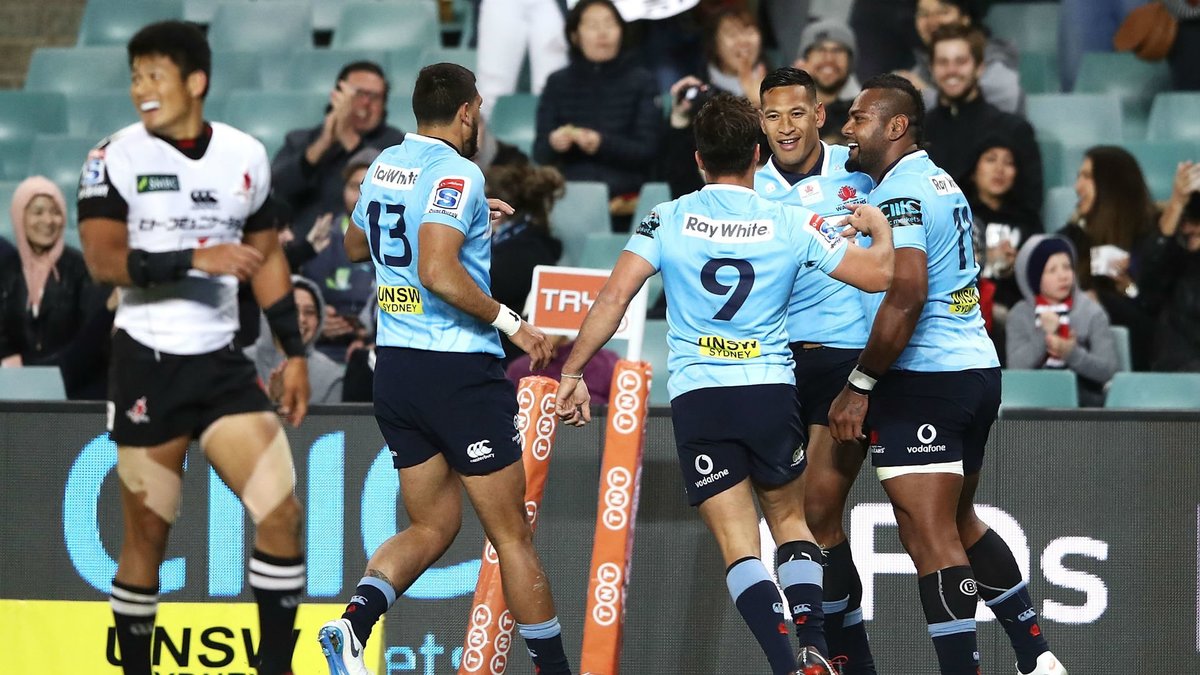Super Rugby is an odd competition.
Even someone who knows nothing about the competition, nothing about the sport, would realise that when you’re not playing in a straight round robin, there are going to be teams with distinctly easier draws.
As there are distinctive differences in strength between the conferences, and you play some teams in your conference more than once, teams from some conferences are always going to get shafted – at the moment, that’s those from New Zealand.
Even within conferences, however, there are draw differences. Not every New Zealand team plays the same teams from outside their conference, for example. In this year’s competition, the Highlanders missed out on playing the Sunwolves and the Jaguares – teams that collectively earned 52 points throughout the season. On the other side of the coin, the Hurricanes avoided the Waratahs and the Stormers, who together amassed 73 points.
It was clear from the outset of the competition that some teams were going to have easier runs to the final than others – a factor that can play a huge role in the final standings. Sticking with the Highlanders and the Hurricanes, it’s interesting comparing how the two teams went against the opposition they shared. Against their rivals from New Zealand, the Highlanders dropped four games and the Hurricanes dropped three. The teams traded the spoils in their two matches and both teams suffered losses to the Crusaders and the Chiefs (two against the Chiefs, in the Highlanders case). In terms of local derbies, the Hurricanes narrowly come out trumps.
When tackling their foes across the ditch, the Highlanders performed better in the games they shared with the Hurricanes. Whilst the men from the capital dropped a match against the Brumbies to cap off a three-match losing streak, the Highlanders only lost to the Waratahs – the team that topped the Australian conference who the Hurricanes managed to dodge altogether.
Against the teams in the African conference the results were fairly similar. The Highlanders dropped a game against the Sharks (who the Hurricanes beat by one point) and the Hurricanes fell to the Bulls (who the Highlanders beat by one point).
Of course, looking at all these results it doesn’t appear that the fixtures played too big of a part in deciding the final standings – but that doesn’t take into consideration the closeness of Super Rugby, particularly in 2018.
Excluding the runaway regular season winners, the Crusaders, only 17 points separated the second-placed
Hurricanes from the tenth-placed Brumbies – that’s four wins and a bonus point over the course of sixteen games. The Jaguares, in seventh, were only four points ahead of the Brumbies and the Highlanders missed out on a home semi-final to the Hurricanes by a mere seven points.
In a competition like this, where one or two games can decide the outcome of your season, strength of draw can play a pretty large role in whether your year is successful or not. Naturally, complaints arise week after week at the fact that the Australians have an easy ride into the finals – getting to play some of the easiest teams in the competition twice. The angst surrounding this is amplified due to the top Australian team getting a guaranteed home semi-final – which, from a fairness point of view, is completely absurd given that the Waratahs finished with the sixth highest number of points recorded but are still hosting a knockout match.
The merits of granting a home semi-final to an Australian team, free of charge, are that Australian fans remain invested in the competition for at least one more week – and have access to a game at a time that fits their schedule. This, of course, results in increased revenue for the competition, which is considered imperative for the survival or Super Rugby.
Defenders of the competition structure are quick to point out that just because New Zealand teams have it rough at the moment, it doesn’t mean they’ll always be the strongest conference. This ignores the fact that there has only been one season where NZ teams haven’t featured in the knockout rounds and that there have been 24 appearances in the final for Kiwi teams (Australian
and South African teams have had a presence in 20 altogether).
The conference system is supposed to go some way to helping the South African and Argentinian teams manage the fact that they’re geographically based so far from the other ten teams in the competition as conferences should reduce the number of games played outside the region. In Super Rugby’s case, however, it only does this for one match per team (an away game against either New Zealand or Australian opposition).
Fairness and professional sport don’t always go hand in hand – it’s not unusual to have a competition where one team faces an easier road to the finals than another. The difference between Super Rugby and some of these other competitions is that Super Rugby is so close to being a structurally fair competition – there’s room for a complete round robin in the calendar, but the
organisers have explicitly chosen to disregard this option.
There have been rumblings that Super Rugby could be switching back to a straight round robin in the future, which would be a huge boon for the competition. Having a structure that makes sense to casual viewers and diehard fans alike will do wonders for viewership numbers.
Average number of competition points earned by each team’s opposition:
Blues 42.81
Highlanders 40.75
Hurricanes 38.56
Bulls 38.56
Chiefs 38.25
Sunwolves 38.06
Jaguares 37.94
Crusaders 37.63
Brumbies 37.50
Stormers 37.38
Sharks 36.13
Reds 35.25
Lions 35.25
Rebels 34.50
Waratahs 34.44
New Zealand 39.60
South Africa 37.05
Australia 35.95


































































